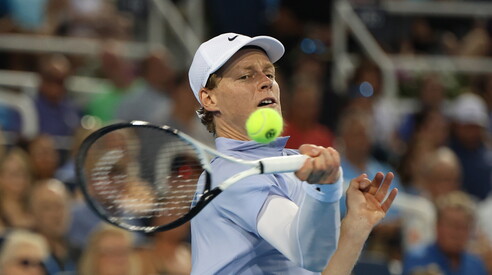Everyone's against the schedule, except Sinner. What's behind the withdrawal in Cincinnati?


Olycom
The Sports Newspaper
Stress, the lack of escape, the ATP filling every empty space in the calendar with a new tournament. It's unclear how much this has to do with our man, who was sidelined for three months and then another after Wimbledon. But an explanation must be given.
A necessary premise, in these hours of concern for our man's fate: from the immaculate mouth of Jannik Sinner, quickly elevated to the status of blessed, has never escaped a word of protest: against the schedule, against the number of matches, against match schedules, against the wear and tear of modern tennis . Never. In general, no complaints whatsoever can be recalled, other than a once raised eyebrow at an umpire, and a barely audible sigh against the heat. If you Google "Sinner protests," nothing comes up. Zero. Moreover, the boy is not talkative, uncomfortable, and lacking in enthusiasm when it comes to giving an interview to a newspaper, much more at ease with the sparse scripts of commercials, never generous with details when, in his periods of crisis, the world expects even a shred of explanation.
What did Jannik have? Fever? Out of the question. Stomach virus? Who knows. Could it have been the strawberries and cream? Do you think someone so dutiful, lean and lanky, would commit a sin of gluttony? But you saw how pale he was, he looked like a rag, he couldn't stand up. It must be the stress. And in fact, established sports psychologists and renowned mental coaches, usually armed against each other, called upon to solve the mysterious case of the bionic tennis player who every now and then, suddenly, shows himself to be fragile and vulnerable, agreed that the boy, notoriously a workaholic, should unplug every now and then. But seriously , not just polish the Ferrari in the garage, the least innocent escape he allowed himself after Wimbledon, but do like the other guy, the pleasure-loving Alcaraz: a nice night at the disco, a bottle of good champagne, and never mind if you wake up the next morning with a headache. Every now and then, it's necessary.
Otherwise, stress eats away at you. And besides, if we happy mere mortals suffer from it with our lives of ups, downs, and pursuits, kids to pick up from school and take to the pool, husbands and wives to please, bosses at work to put up with, etc., imagine these poor tennis players forced to grind out victories and money, business deals and performances for the pleasure of wealthy oilmen, training and business trips, massages on the table, and nights in star-studded hotels. Oh, stress, Freud, and sex, it's all a cesspool, Rino Gaetano sang about fifty years ago.
The problem, more than a few argue, is that tennis players today risk throwing away their physical integrity and mental strength if they don't stop supporting the ATP's mad rush to fill every crack in the calendar with a new tournament or, as has happened in recent years at numerous Masters 1000s, including Rome, by extending existing tournaments. This is more or less the alarm raised in recent days by Paolo Bertolucci, one of the few free, and therefore critical, voices left in the wonderful tennis star system. Everyone is happy when it comes to increasing the number of matches—organizers, managers, players, and their various supporters, because they all pocket more money—but then they get scandalized when one guy retires or another guy goes crazy, and they cry foul. The fact that the ineffable ATP president Andrea Gaudenzi, the same one who last year asked the Italian government for financial guarantees to award another five-year Finals to Italy and this year signed a scathing letter against the same government that, in exchange for those guarantees, demands to understand how the revenues are invested, justified himself with the classic "everyone does it" - "In many sports," he said, "there is a clear trend toward an increase in competitions, just look at football, with the expanded Club World Championship launched this summer" - does not bode well for the health of tennis players.
But what does all this have to do with Sinner, who has been sidelined for three months in 2025, and took another after Wimbledon to prepare for Cincinnati and, above all, the US Open where, for the first time in 64 weeks, he's putting his sceptre on the line? Nothing , but an explanation for the virus that has gripped him was needed. A friendly draw—opener against Kopriva, number 87; possible quarterfinals with Draper or Musetti; seeds with Zverev—because fortune always favors the bold. As long as they laugh every now and then. And have no worries, that guy said.
More on these topics:
ilmanifesto




